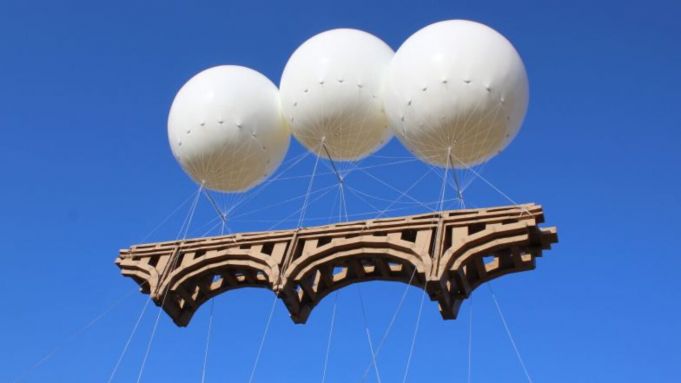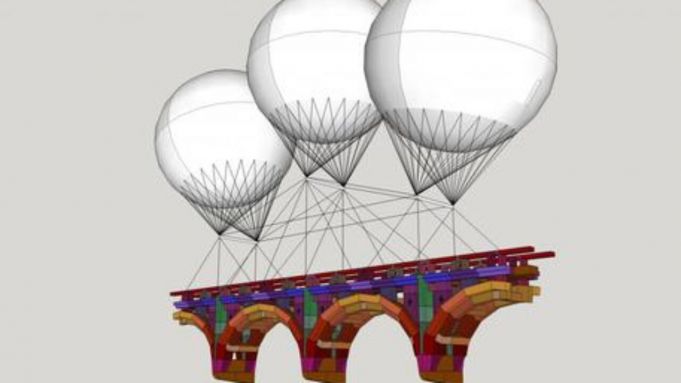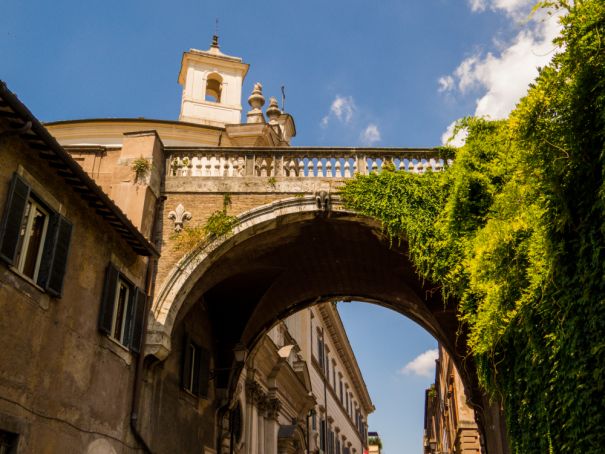Rome will host a temporary installation in homage to Michelangelo's bridge that was never built.
Michelangelo Buonarroti's dream of a bridge linking Palazzo Farnese with Villa Farnesina will finally be realised thanks to a project by French artist Olivier Grossetête.
Made from cardboard, the 'Ponte Farnese' will be suspended over Rome's Tiber with three large helium balloons, connecting the French embassy with Villa Farnesina on the other side of the river in Trastevere.

The 18-metre long "flying bridge" - built with the help of hundreds of volunteers, including children and students - has been organised by the French embassy together with the Institut Français Italia, with the support of the Webuild group and in collaboration with Villa Farnesina-Accademia dei Lincei.
The installation will be inaugurated at around 19.00 on the evening of 13 July - the eve of Bastille Day, France's national holiday - in the presence of Rome mayor Virginia Raggi and French ambassador to Italy Christian Masset.
Organisers describe the initiative, whose official name is Ponte fra le Epoche, as "an ephemeral homage where modernity and timeless beauty meet," with WeBuild hailing the project as "a symbol of hope."

The bridge will be raised over the stretch of the river Tiber near Ponte Sisto, where it will remain suspended from a height of 18 meters until 18 July before being taken down and recycled.
Brief history of Michelangelo's plan for Ponte Farnese
In the 16th century Michelangelo was commissioned by Pope Paul III Farnese to create a link between Palazzo Farnese and the gardens that the family owned on the opposite bank of the Tiber, home to Villa Farnesina, today the base of the Accademia dei Lincei.

The Ponte Farnese was never completed however and only got as far as its initial phase, still visible today as the 'Arco dei Farnesi' on Via Giulia.
After Michelangelo died, the architectural project was entrusted to Vignola and Giacomo della Porta.
However the construction involved an enormous expense and, with the Farnese funds drying up, it was eventually decided to abandon the dream.
For 500 years Michelangelo's project has remained an ambition on paper, until now, when Romans will have the chance - for a few days - to imagine what the bridge would have looked like.
Cover image courtesy WeBuild
General Info
View on Map
Michelangelo's lost bridge to float over Rome
Piazza Farnese, 67, 00186 Roma RM, Italy


















